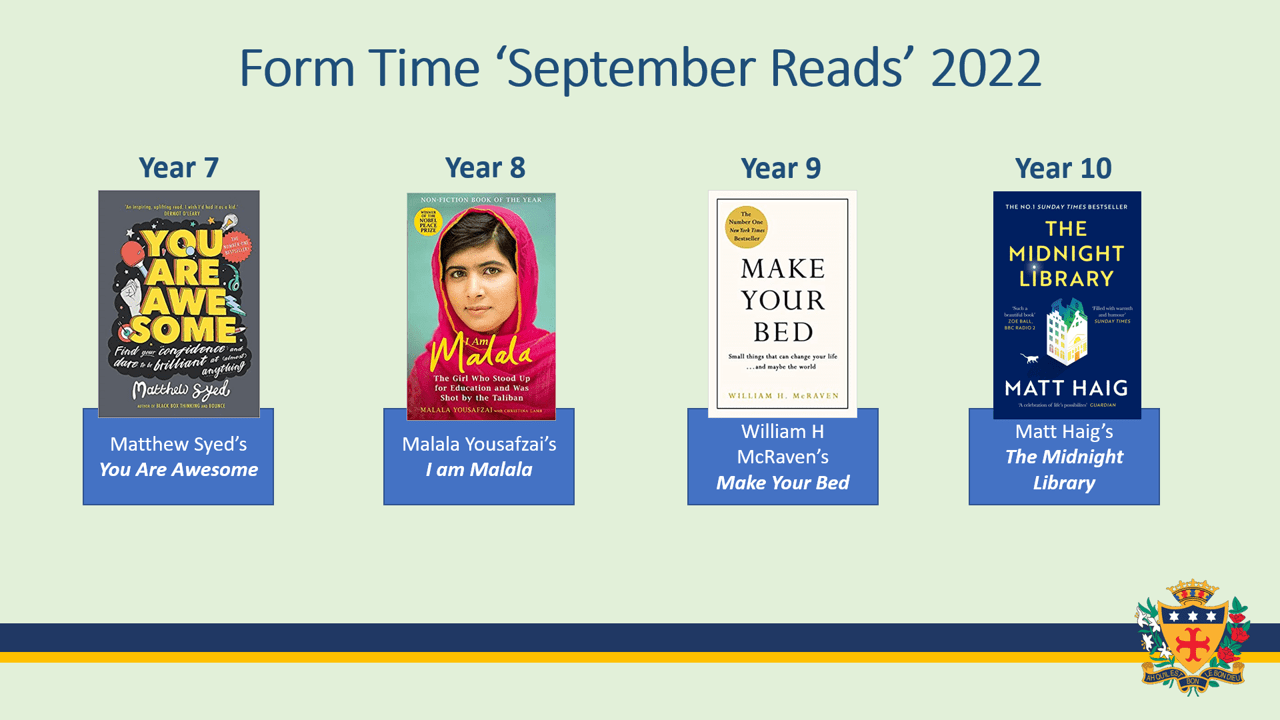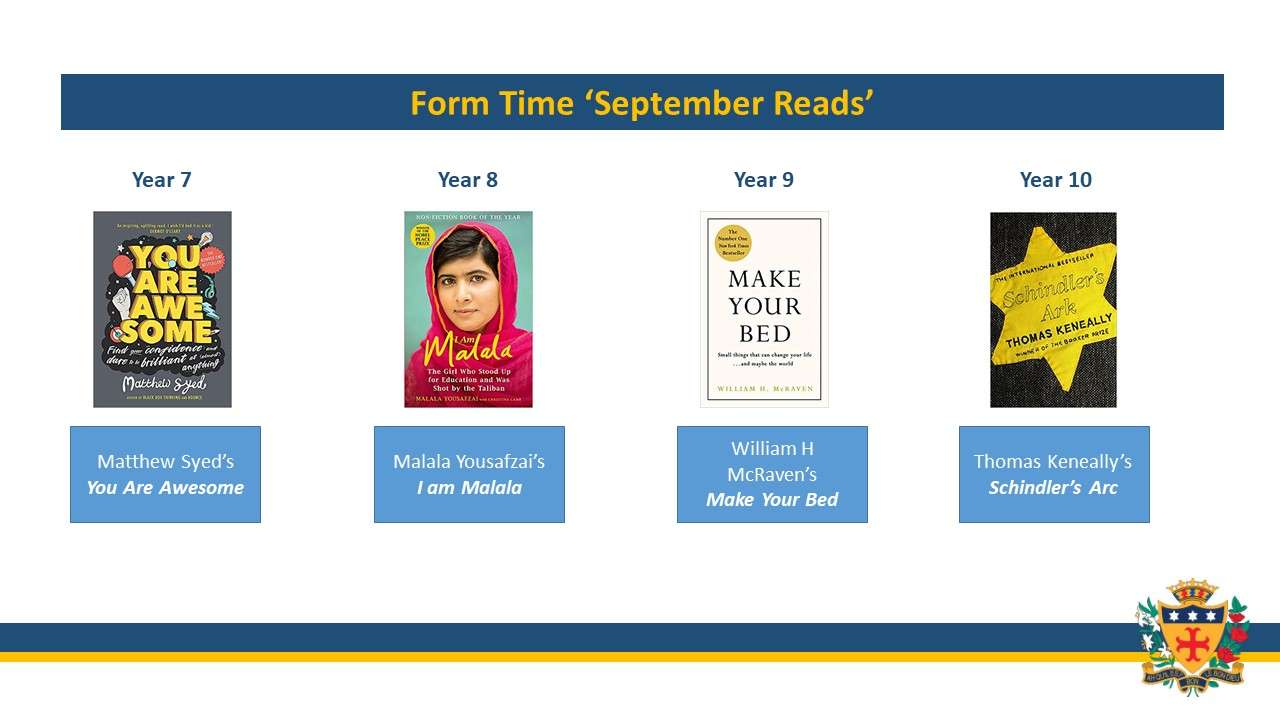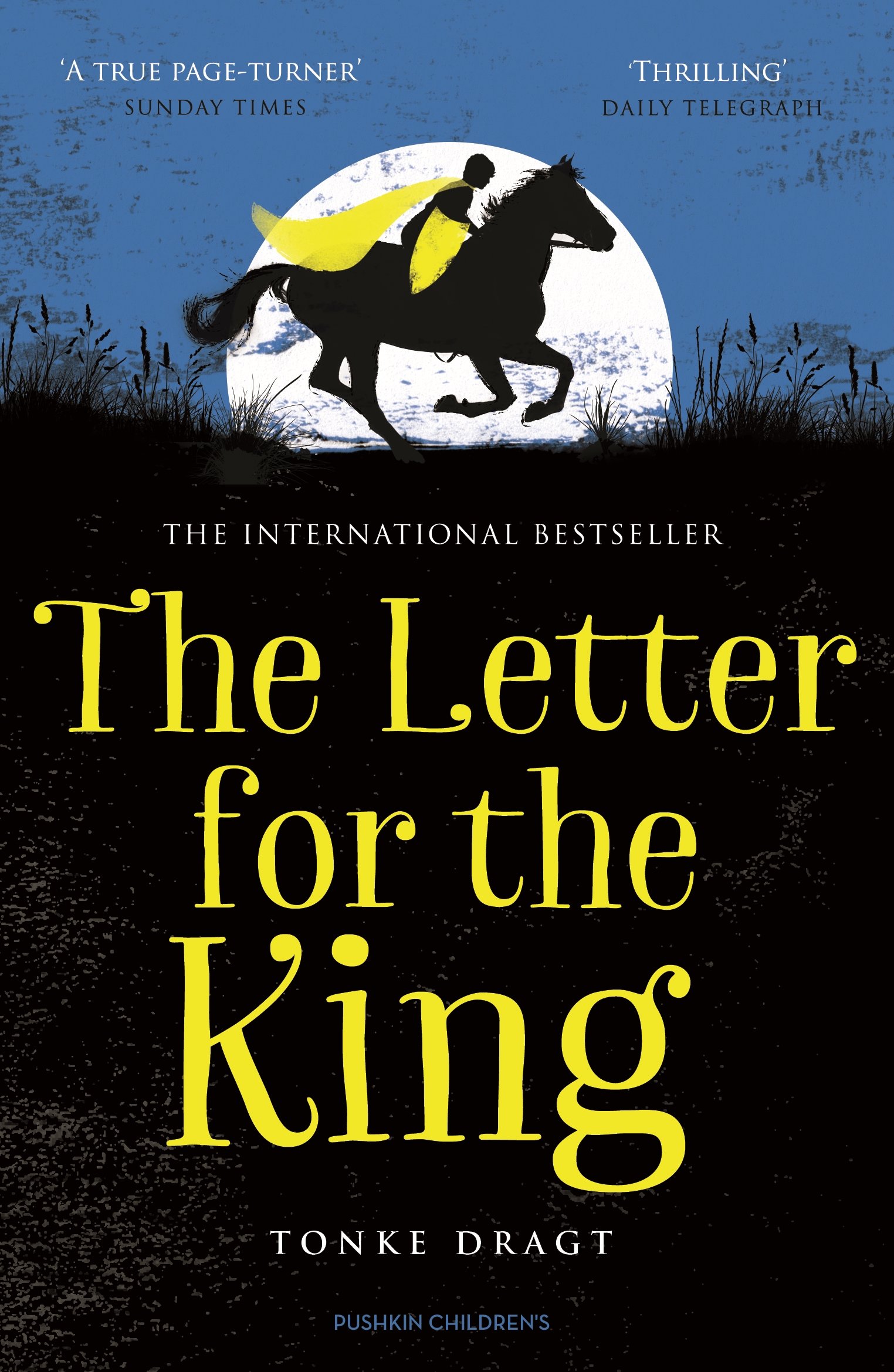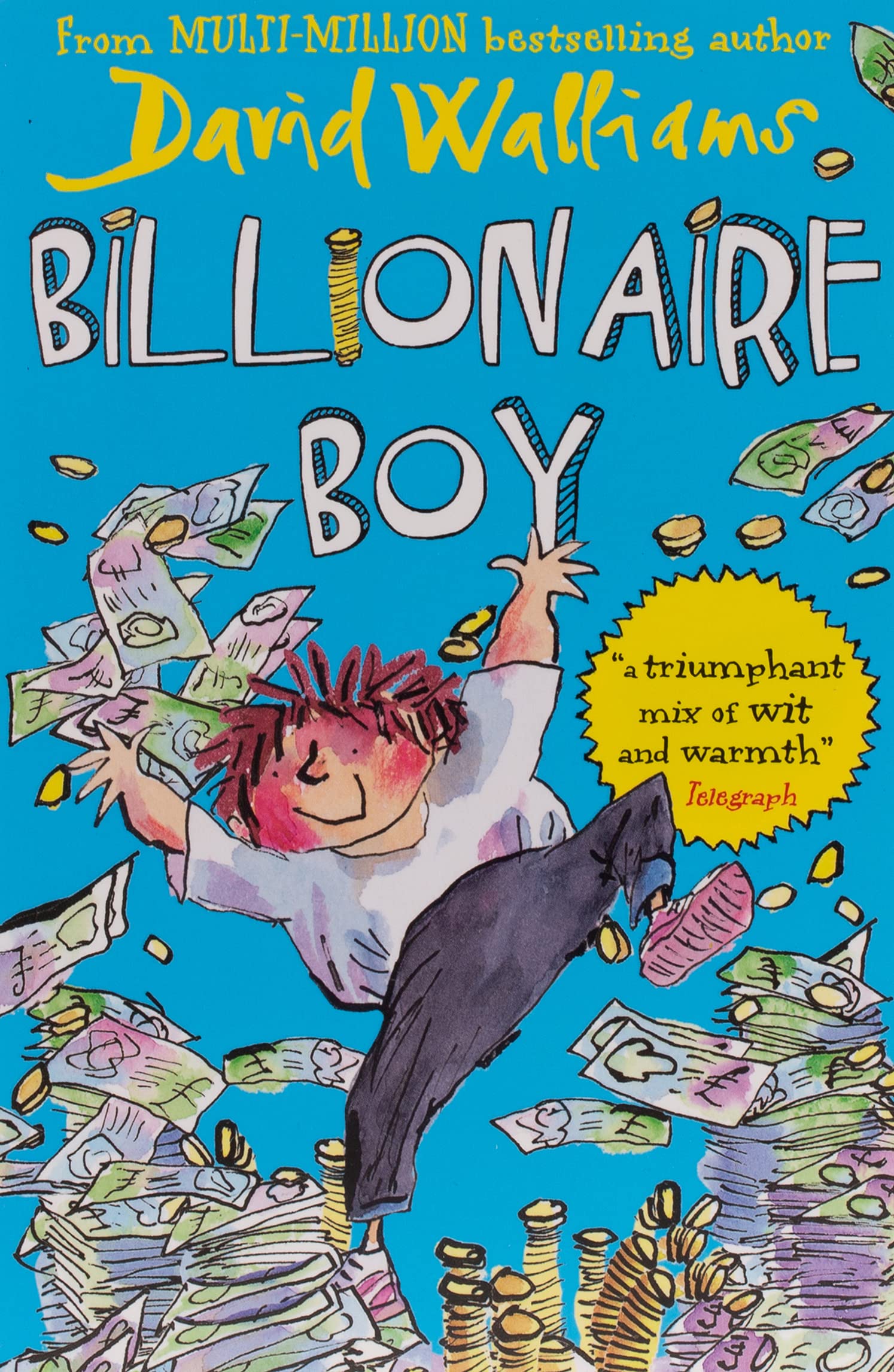
A reader lives a thousand lives before he dies...The man who never reads lives only one.”
– George R.R. Martin
Reading Strategy
At Notre Dame Catholic College, we aim to systematically cultivate in our students the habit of reading, to develop their confidence in reading, and to ensure that they acquire love of reading that will last a lifetime.

- A Reading Culture
- Daily Reading Programme
- Reading for Pleasure
- Reading Support
- Guidance for Parents
- Staff Recommendations
- Subject Specific Reading
Strategies deployed to embed a reading culture throughout Notre Dame Catholic College
All students are challenged to read widely and to experiment by reading a range of genres. The library stocks a diverse range of fiction and non-fiction texts.
A dialogue about books and reading is encouraged by, for example, publishing students’ book reviews; all staff regularly engaging in conversations with students about their reading and students making presentations about the books they have read in reading lessons. The librarian and our whole school literacy coordinator promote a wide range of weekly and monthly initiatives and events to develop reading and encourage students to visit the library regularly.
A programme of activities is published at the beginning of each term. Students play an active role in promoting reading through, for example, being consulted on the choice of texts and involvement in planning the weekly library activities. Staff model good reading habits by discussing books and reading during form period, sharing subject-based articles and texts in lessons, leading assemblies on reading and providing displays that promote reading.
The Reading Calendar The Reading Calendar is how our school celebrates and promotes reading through various whole school activities such as World Book Day and Shakespeare’s Birthday. 3 Recent whole school events have included National Poetry Day, Remembrance Day and Black History Month.
We want Notre Dame to be a school with a reading culture and for all departments to celebrate and reinforce the importance of reading within their own subjects. Form Time Reading Programme From September 2021, students in Years 7 – 10 will read in form every day with their form teacher.
They will read a wide range of fiction and non-fiction texts, including texts from the literary canon. All staff will be trained in promoting reading and schemes of learning will emphasise the development of reading for pleasure. Parental guidance Parents/Carers are given guidance on the college website about how they can best support and encourage their child to develop the habit of reading.
Form Time Reading
This year we have launched our daily reading within form time. Every pupil in years 7 to 10 have the opportunity to read/be read to four times a week during form time for between 20 and 30 minutes per day. As you can see from the book choices below, they are diverse and capture that of a modern day society and also allowing pupils to make real connections to books. Each pupil has a physical copy of the book with them each day and we encourage our Confident Readers to read aloud to the rest of the group within these sessions.
The benefits of Reading for Pleasure
Hobbies are something that we all enjoy and reading should be no different. Reading for pleasure can open so many doors within our imaginations and it is something that we are keen to push here at Notre Dame Catholic College. Our new Reading Strategy Coordinator, Mrs Murphy is currently working away in our library to make it a vibrant space for people to come, relax and explore thier imagination through the power of books.
However, reading for pleasure means reading something that you are interested in, this could include;
1) News articles on websites – here are some links to websites that allow you to read articles for free
Liverpool Echo – https://www.liverpoolecho.co.uk/
BBC News – https://www.bbc.co.uk/news
Sky News – https://news.sky.com/uk
Newsround – https://www.bbc.co.uk/newsround
2) You can also get subscriptions to magazines that suit your individual interests, you can browse some on the link below;
https://www.magazine.co.uk/kids-magazines/teenage
3) Visiting you local library. You can search for your local library by clicking on the link below;
https://liverpool.gov.uk/libraries/find-a-library/
4) Reading Blogs by your favourite influencer, sports star or celebrity. You can find some celebrity blogs by searching for them on Google, but many people have links to them in their Twitter or Instagram Bios.
Strategies deployed to support those who struggle to read at Notre Dame Catholic College
Baseline testing
All students’ reading ages are tested on entry to Year 7 to inform differentiated lesson planning and to decide which students should have additional reading intervention. All students’ progress in reading is measured and monitored throughout the year and students are retested in June.
A baseline reading test and a reading age test at the beginning of Year 7 are followed up by reading assessments in English throughout the year. This enables close monitoring of each student’s progress in reading and allows for appropriate interventions to be put in place by the SENCo or Head of English, if required.
The reading levels and profile of 9 each year group generated by the baseline tests are analysed and the findings presented to, and discussed with, staff. Reading interventions Interventions are put in place for students whose reading is below expectation on entry. Students entering the college with a reading age significantly below that expected of a child their age are given additional opportunities to practice reading in a 1:1 or small group setting with our SENCo or a LSA. Additional reading lessons and literacy lessons have been timetabled in English at Key Stage 3 in order to promote reading for pleasure and to deliver a catch-up literacy programme (designed by SIL) to support students who are struggling because of lost curriculum time due to Covid-19.
- Identified students between Years 7-11 receive literacy and reading intervention using STAR reader and MYon, an online reading platform that links books to the pupils reading age and supports them in improving their level of reading. This can be accessed in school and at home.
- Students with cognition and learning needs receive intervention using the Hornet Literacy Primer, a manual for teaching literacy skills with a focus on reading and spelling. The Hornet’s early exercises are concerned with learning the basic phonic sounds of the alphabet code.
- Students with cognition and learning needs receive intervention using the Word Wasp, which, like the Hornet, is a manual for teaching literacy skills, both reading and spelling. The structured programme is based on phonics and those rules which govern English.
How can parents enourage and support reading at home?
- You can register for free to access a range of ebooks, audiobooks and magazines offered by Liverpool City Council by clicking on the following link https://www.readliverpool.co.uk/
- Make time to read together if you don’t already. 10 minutes each day is a great start.
- Let your child choose what to read, rather than choosing what you think he should read.
- Encourage your child to read magazines, comics, newspapers and the Internet as well as books.
- Talk to your child about books or magazines you haven’t enjoyed, as well as the ones you have.
- Buy books as presents. You can read TV, film and game tie-ins and books about any other interests such as music.
- Remember that your child is reading when he is looking at bus timetables, menus, instructions, TV guides, and the Internet—encourage all forms of reading
- Try some skimming and scanning together. Skimming is when you read through a piece of text quickly to find out what the main idea is; scanning is glancing through a piece of text to find a specific piece of information.
- Help your child to work out what an unfamiliar word means by getting them to read the rest of the sentence and look for clues.
- Help by testing your child when they have spellings to learn, and by encouraging them to look up words they don’t know in a dictionary.
- Build up the number of words your child knows (their vocabulary). To help them learn these words, you could ask your child to explain to you what they mean.
Websites to help the development of Reading at home & School:
Oxford Owl Press http://www.oxfordowl.co.uk
Wordsforlife.org.uk http://www.wordsforlife.org.uk/
A Story For Bedtime www.astoryforbedtime.com
BBC Parenting website www.bbc.co.uk/parenting
Booktrust www.booktrust.org.uk
The Child Literacy Centre www.childliteracy.com
DfES Parents Centre www.parentscentre.gov.uk
Help them read www.helpthemread.co.uk
Parent Link www.parentlink.co.uk
Read Together www.readtogether.co.uk
Silly Books www.sillybooks.net
Staff love to share their recommendations for reading and here are some of them.
- Mr Dixon recommends The Lord of The Rings by J.R.R Tolkien

- Mrs Collings recommends reading The Kite Runner by Khaled Hossani

- Mr McVerry recommends A Letter for The King by Tonke Dragt

- Mrs Sweeney recommends Billionaire Boy by David Walliams

Reading accross subject areas (click on the links below to see wider reading in each subject)


